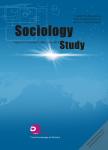What if the "Gold Standard" Can't Be Realized? Propensity Scoring to Adjust for Attrition in Random Experiments
What if the "Gold Standard" Can't Be Realized? Propensity Scoring to Adjust for Attrition in Random Experiments作者机构:Hunter College School of Social Work New York USA
出 版 物:《Sociology Study》
年 卷 期:2011年第1卷第1期
页 面:75-81页
学科分类:02[经济学] 0202[经济学-应用经济学] 020208[经济学-统计学] 081902[工学-矿物加工工程] 0819[工学-矿业工程] 07[理学] 08[工学] 0714[理学-统计学(可授理学、经济学学位)] 070103[理学-概率论与数理统计] 0701[理学-数学]
主 题:Multiple regression propensity scoring logistic regression attrition in random experiments
摘 要:When it comes to evaluating the effectiveness of interventions, the random experiment is considered the "gold standard". Randomization is considered the gold standard because it provides a way of decreasing the chance that systematic differences, other than type of intervention, will be obtained between treatment and control groups. What has received little attention in the literature, however, is the fact that even with random assignment researchers may end up facing problems similar to those faced with data from a study that did not use randomization. This is because attrition may result in the values of potentially confounding variables no longer being "balanced" between (or among) the groups under investigation. This means that in order to estimate the effect of the treatment, one must find some way of adjusting for these potential confounders. Although multiple regression modeling is the way social science researchers typically control for the effects of potentially confounding variables, this paper argues that a modification of multiple regression modeling that uses propensity scores, under some conditions, may provide more parsimonious and better fitting models.



